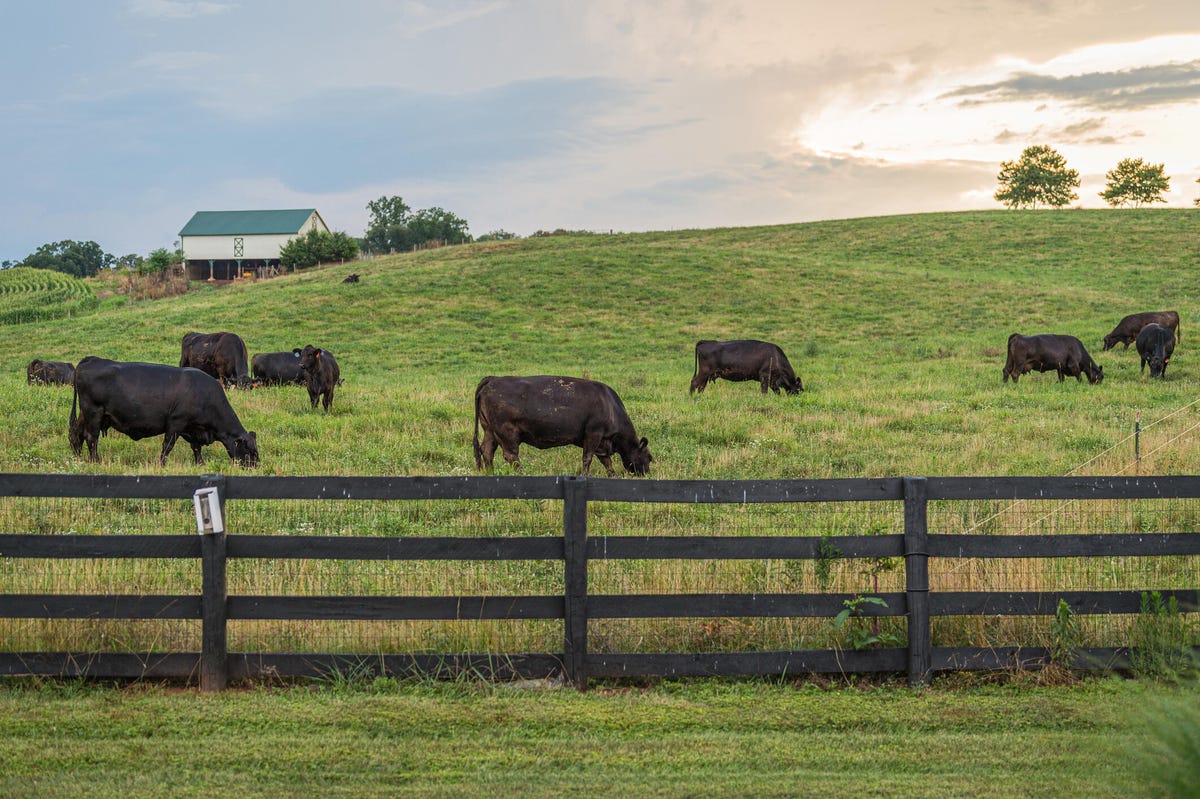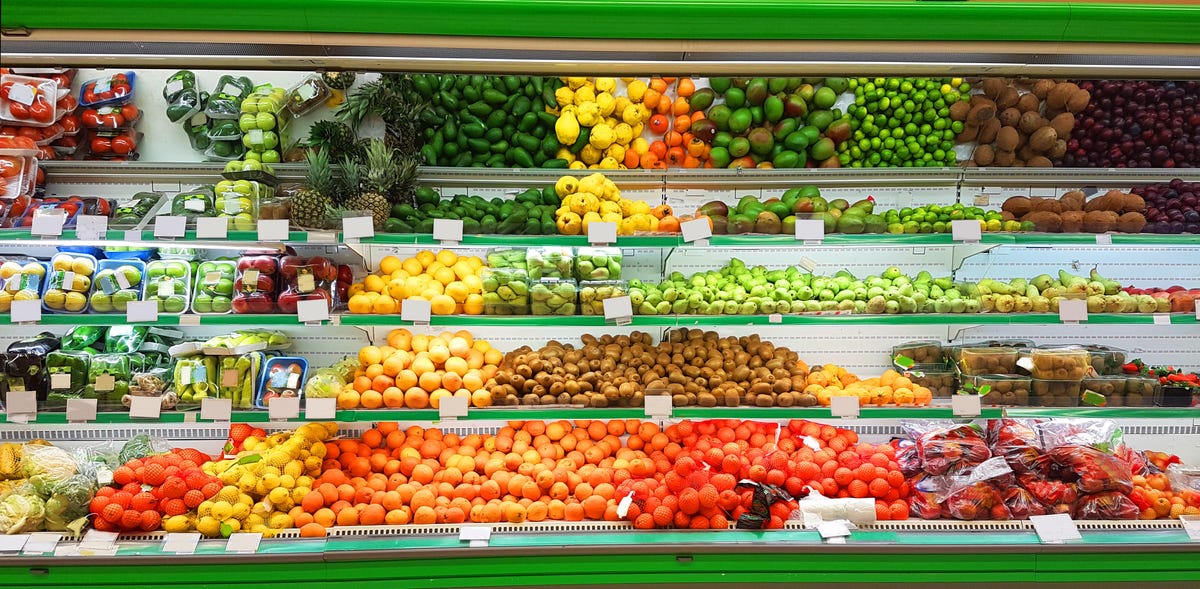You Can Save Big Bucks by Going Meatless Once a Week
This story is part of 12 Days of Tips, helping you make the most of your tech, home and health during the holiday season.
You’ve likely heard the phrase “Meatless Monday” before. It’s a simple enough statement to understand: You skip eating meat one day a week to improve your nutrition. But going meatless once a week has many benefits besides lowering your risk of cancer, heart disease and obesity — it can benefit your wallet too.
I went vegetarian in college for the environmental benefits of reducing meat intake, but now as a graduate with a full-time job, going meatless has helped me save a ton of money on groceries too. With high gas prices, inflation and rising utility bills, it’s important to find ways to save where you can. Here’s how much you can expect to save annually just by going meatless at least one day a week.
What is Meatless Monday?

Meatless Monday isn’t just a fad or a snappy phrase created by vegans or vegetarians to get you to stop eating your favorite meals. Meatless Monday is actually an initiative created by the Center for a Livable Future at Johns Hopkins Bloomberg School of Public Health in 2003 to address public health, ecological and global food security concerns. CLF deduced that reducing your intake of meat or animal products, even one day a week, can protect your personal health and nutrition, global health and the environment.
CLF defines going “meatless” as cutting out all red meat, poultry or seafood for one day a week, every week. These meat-centered meals can be swapped for meals built around beans, lentils, vegetables, whole grains and other plant-based proteins.
While not necessary to make an impact, millions of people globally have opted for diets that cut out meat permanently, either identifying as vegetarian (someone who does not eat meat) or vegan, someone who does not eat any meat, animal products or animal byproducts (meat, poultry, fish, seafood, dairy and eggs).

Nearly 14.5% of all global greenhouse gas emissions are due to meat and dairy production.
Heather Paul/Getty Images
Why go meatless?
According to CLF, the rationale is that “meat consumption in the US and globally must be significantly reduced to mitigate the public health and environmental effects of climate change, particularly in high-income countries.” Nearly 14.5% of all global greenhouse gas emissions are due to meat and dairy production, according to the UN’s Food and Agricultural Organization.
Switching to a vegetarian, vegan or largely plant-based diet can greatly reduce emissions considering the climate impact of plant-based foods is typically 10 to 50 times smaller than that of animal products.
Meat is also typically high in saturated fat and cholesterol, and many chronic health conditions are linked to higher intakes of animal products, especially red meat. This isn’t to say everyone needs to cut out meat to have a healthier diet, but on average, Americans eat more meat than is recommended by health experts. In fact, Americans eat more than 1.5 times the average daily protein requirement and more than three times the global average of meat consumption, according to CLF.

Want to try going meatless but scared of missing the taste and flavor of your favorite poultry dishes? Try these Impossible Chicken Nuggets, the best vegan nugget on the market.
If you’re a meat-eater looking for an occasional plant-based alternative or looking to try Meatless Mondays, you can’t go wrong here.
Simply replacing meats with vegetables, fruits, whole grains and plant-based proteins, such as nuts and legumes, will ease dietary concerns. For tips on how to grocery shop, these are the cheapest fruits and veggies you can buy right now. Plus, here are tips on how to keep fruits and vegetables fresh for longer.

People on meatless diets spend an average of $23 less on food every week.
summerphotos/Getty Images
How much can you actually save by going meatless?
Though many people may believe buying fresh produce will break the bank, plant-based proteins and meatless diets tend to be less expensive and offer more health benefits than meat. Think about it, rather than buying $18 New York Strip steaks for dinner you could spend $1.48 on a head of lettuce with cucumbers and grape tomatoes to make a salad for significantly less.
Meat per pound is significantly more expensive than fruits and vegetables per-pound. Based on current food prices in the US, 1 pound of beef costs $6.19 and 1 pound of chicken costs $5.25, while fruits and vegetables average around $1 to $2 per pound.
Average Retail Food Price (per lb.)
| Item | Price (as of Oct. 2022) |
|---|---|
| White Rice | 0.963 |
| Spaghetti and macaroni | 1.349 |
| Bananas | 0.634 |
| Navel oranges | 1.73 |
| Romaine lettuce | 3.138 |
| Tomatoes | 1.974 |
| Strawberries | 3.108 |
| Lemons | 2.09 |
| Potatoes | 0.991 |
| A dozen eggs | 3.419 |
| Lean ground beef | 6.68 |
| Sirloin steak | 10.496 |
| Chuck roast | 6.73 |
| Sliced bacon | 7.608 |
| Pork chops | 4.492 |
| Boneless ham | 5.65 |
| Chicken breast | 4.67 |
| Chicken legs | 2.013 |
As you can see from the information in above chart, — pulled from the US Bureau of Labor Statistics — meats, poultry, fish and eggs are more expensive than fresh produce items.
A survey of over 1,000 Americans conducted by Sous Vide Guy found that roughly 1 in 4 people who consume meat didn’t believe a plant-based diet was a cheaper alternative. However, people on meatless diets spent an average of $23 less on food every week. Plus, that number can rise dramatically for those purchasing nitrate-free, non-GMO or organic meats.
Using this figure, if you cut out meat, you could save $1,196 over the course of a year.
While you won’t save as much by only cutting out meat once a week, every bit helps. To learn more about plant-based diets, read our guide on the pros and cons of a plant-based lifestyle, and how to safely remove meat from your diet. You can also check out the best vegetarian and vegan meal delivery services.
More money-saving kitchen tips and tricks
For all the latest world News Click Here

